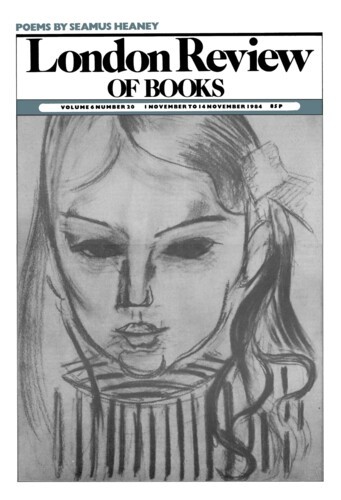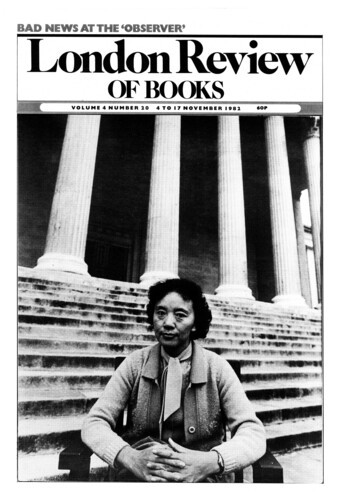Philosophemes
David Hoy, 23 November 1989
Derrida likes to surprise, and the first surprise of this book is the title itself. The common assumption that the French Post-Structuralists abandoned the interest of their phenomenological predecessors in consciousness, subjectivity and the entire philosophical vocabulary including words like ‘spirit’ and ‘soul’ is challenged by the titles of the two recent books by Derrida, De l’esprit and Psyché, both published in France in 1987. Of Spirit reflects on whether this vocabulary can really be avoided, and it does so principally by asking whether Heidegger, whose intention in Being and Time was to avoid the notion of spirit, was successful in doing so. While this point may initially appear to be of interest only to Heidegger scholars, Derrida’s ruminations should intrigue anyone interested in Post-Structuralism, since it is Heidegger the Post-Structuralists are thought to be following in their break with the traditional subject-object split that modern philosophy inherits from Descartes and that culminates in Hegel’s conception of Geist. In Heidegger scholarship, however, ‘spirit’ appears to be forgotten, not only by those who agree with Heidegger but even by those who disagree. This forgetting seems to signify a complete shift in 20th-century philosophy away from a paradigmatic interest in spirit, to such an extent that in philosophy no one knows what it is any more.





